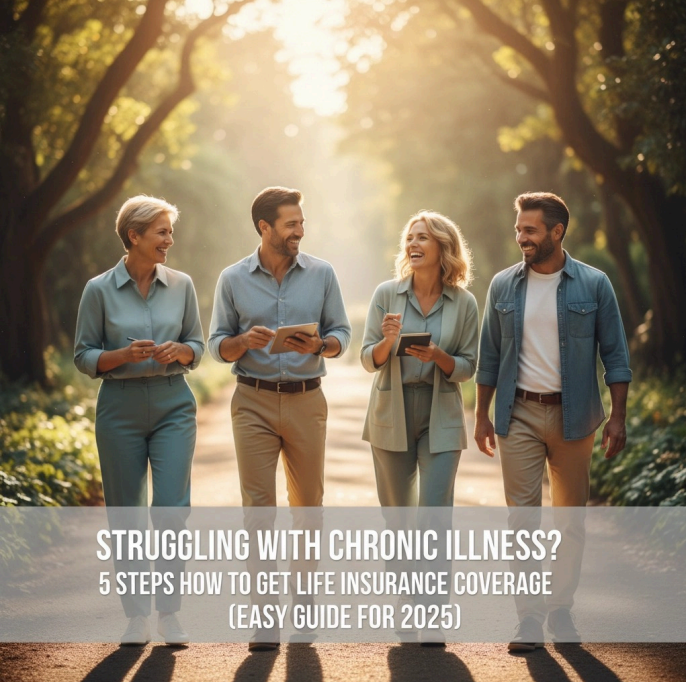The Bowie Insurance Group LLC Blogs
Why Life Insurance Matters for Ages 25-40: Especially If You're Self-Employed

If you're in your twenties or thirties, life insurance might feel like something you can put off until "later." Maybe you're focused on building your career, starting a family, or launching your own business. But here's the thing: this decade of your life is actually the perfect time to secure coverage, especially if you're self-employed. Let's explore why getting life insurance now can be one of the smartest financial moves you'll ever make.
Your Prime Years for Affordable Coverage
Think of life insurance premiums like a snapshot of your current self. The younger and healthier you are when that picture gets taken, the better your rates will be: and they'll stay locked in for the life of your policy. This means the $30 you might pay monthly for coverage at 28 could easily become $60 or more if you wait until you're 38
Your health today is likely the best it's ever going to be. You might not have developed the high blood pressure, diabetes, or other conditions that become more common as we age. Insurance companies know this, which is why they reward your youth with significantly lower premiums. Even if you develop health issues down the road, your rates won't change as long as you keep paying your premiums.

Life Gets Complicated Fast in Your 30s
Remember when your biggest financial worry was whether you could afford dinner out? Those days have a way of disappearing quickly. Suddenly, you might have a mortgage, a spouse who depends on your income, or little ones who need everything from diapers to college funds. Your financial responsibilities multiply, and with them, the need for protection.
Maybe you're carrying student loans that you don't want to burden your family with. Or perhaps you've got credit card debt from starting your business. Without life insurance, these financial obligations don't just disappear: they become your loved ones' problem. That's not the legacy any of us want to leave behind.
The beauty of securing coverage now is that it grows with you. That policy you buy today will be there when you get married, when you have children, and when you take on that bigger mortgage. You're essentially future-proofing your family's financial security at today's rates.
The Self-Employed Reality Check
When you work for yourself, the financial safety nets that traditional employees take for granted simply don't exist. No group life insurance through HR. No automatic payroll deductions that make coverage feel painless. It's all on you to protect your family's future.
But here's what makes this even more critical: your business likely depends entirely on you. If you're a freelance graphic designer, consultant, or restaurant owner, your income stops the moment you're no longer able to work. Your family doesn't just lose a paycheck: they lose the entire business income that supports their lifestyle.

Beyond Just Income Replacement
Life insurance isn't just about replacing your paycheck: it's about replacing all the financial contributions you make to your family's life. Maybe you're the one who handles the business finances, maintains client relationships, or holds the specialized knowledge that makes your company valuable.
For self-employed individuals, life insurance can serve multiple purposes:
- Business Debt Protection: If you have business loans or credit lines, life insurance can prevent your family from becoming responsible for these debts. It can also protect any co-signers who helped you get started.
- Transition Time: Your policy can provide funds for your family to hire professionals to wind down your business properly, collect outstanding invoices, and handle client transitions without financial pressure.
- Estate Planning: If your business has value beyond just your personal services, life insurance can help cover estate taxes and ensure a smoother transfer of assets to your heirs.

The Types of Coverage to Consider
You don't need to become an insurance expert overnight, but understanding your basic options helps you make informed decisions. Term life insurance is often the most affordable option for younger people, providing substantial coverage for a specific period: usually 10, 20, or 30 years. This can be perfect if you need maximum coverage while your children are young and your mortgage is substantial.
Whole life insurance costs more upfront but includes a savings component that builds cash value over time. For self-employed individuals with irregular income, this cash value can serve as an emergency fund you can borrow against during lean business periods.
Many people find that a combination works best: term insurance for immediate high-coverage needs and a smaller whole life policy for permanent protection and cash accumulation.
How Much Coverage Do You Actually Need?
The old rule of thumb suggests 7-10 times your annual income, but your actual needs depend on your specific situation. As a self-employed person, consider:
- Your family's immediate expenses (mortgage, groceries, utilities)
- Outstanding debts (business loans, credit cards, student loans)
- Future needs (college funds, retirement savings for your spouse)
- Business obligations and transition costs
- Final expenses and emergency funds
Don't let the numbers overwhelm you. A knowledgeable insurance advisor can help you work through these calculations and find coverage that fits both your needs and your budget.
Making It Work with an Irregular Income
One of the biggest challenges self-employed individuals face is managing expenses with fluctuating income. Some months are feast, others are famine. The key is choosing a premium amount you can consistently afford, even during slower periods.
You might start with a smaller policy that fits comfortably in your budget, then increase your coverage as your business grows and stabilizes. Many insurance companies offer flexible premium payment schedules that can align better with your business income patterns.
The Peace of Mind Factor
Beyond all the financial calculations and practical considerations, there's something powerful about knowing your family is protected. When you're building a business, taking risks, and pushing yourself to succeed, that underlying security can actually free you to take the smart chances that grow your venture.
You're not just buying a policy: you're buying the confidence to pursue your entrepreneurial dreams knowing that your loved ones won't pay the price if something goes wrong.
Taking the Next Step
Getting life insurance doesn't have to be complicated or overwhelming. Start by honestly assessing your financial situation and family needs. Consider how much debt you're carrying, what your family's monthly expenses look like, and how your business income factors into their security.
Remember, the best life insurance policy is the one you actually purchase. Don't let perfect be the enemy of good: start with coverage you can afford now, and adjust it as your circumstances change.
If you're ready to explore your options, consider reaching out to experienced professionals who understand the unique challenges self-employed individuals face. At The Bowie Insurance Group, we specialize in helping entrepreneurs and business owners find coverage that fits their specific needs and circumstances.
Your twenties and thirties represent a unique window of opportunity: one where you can secure substantial life insurance coverage at rates you'll never see again. Your future self, and more importantly, your family, will thank you for taking action today.




